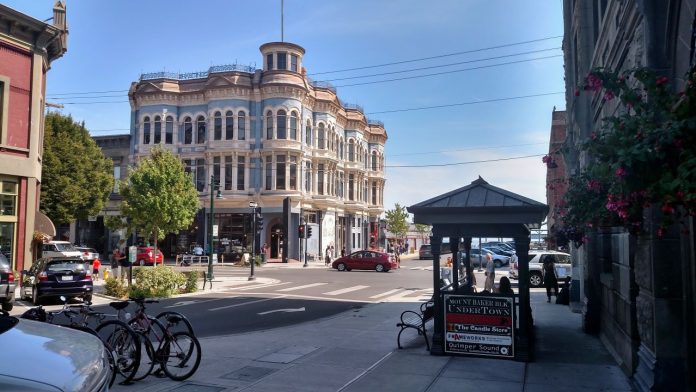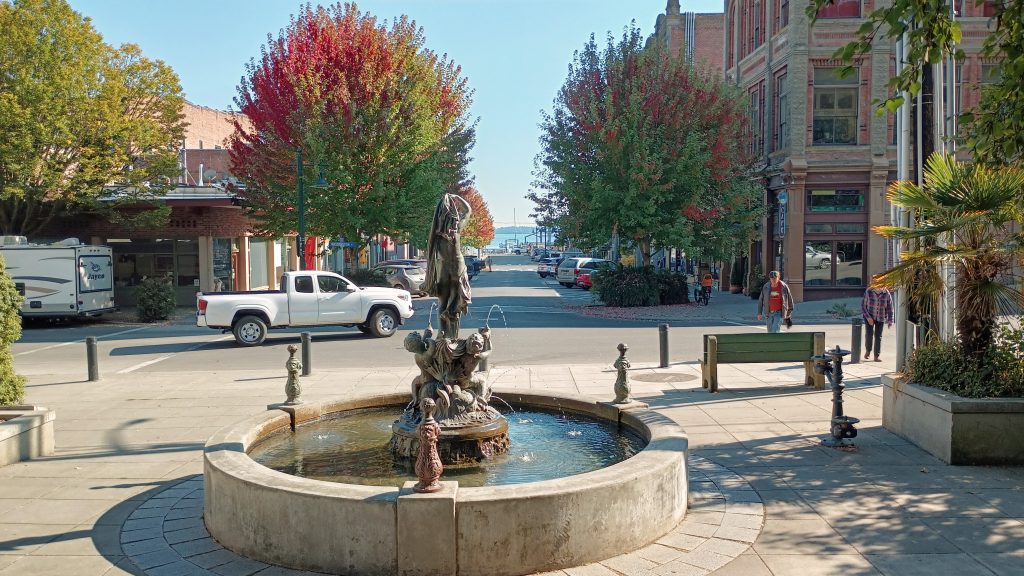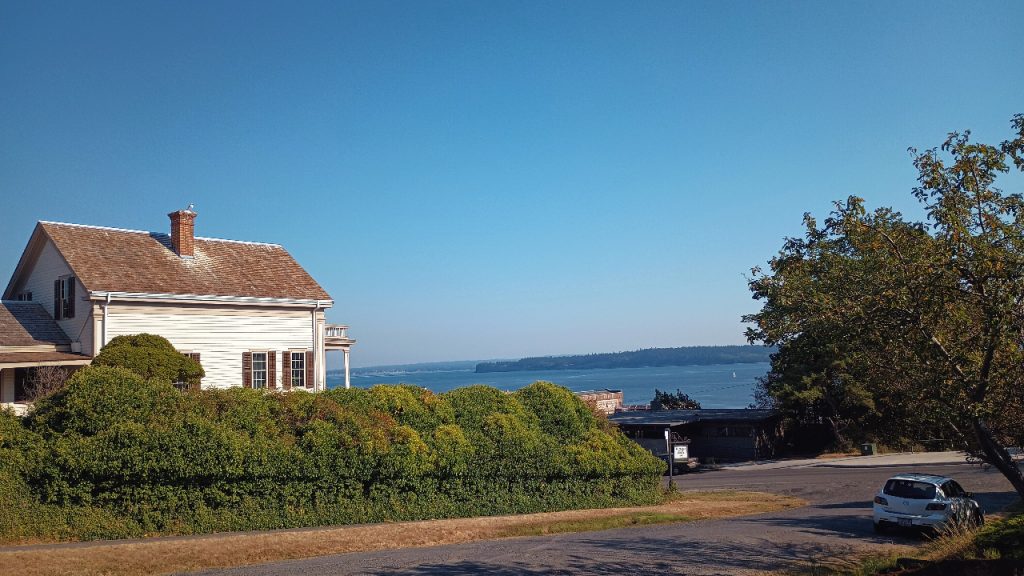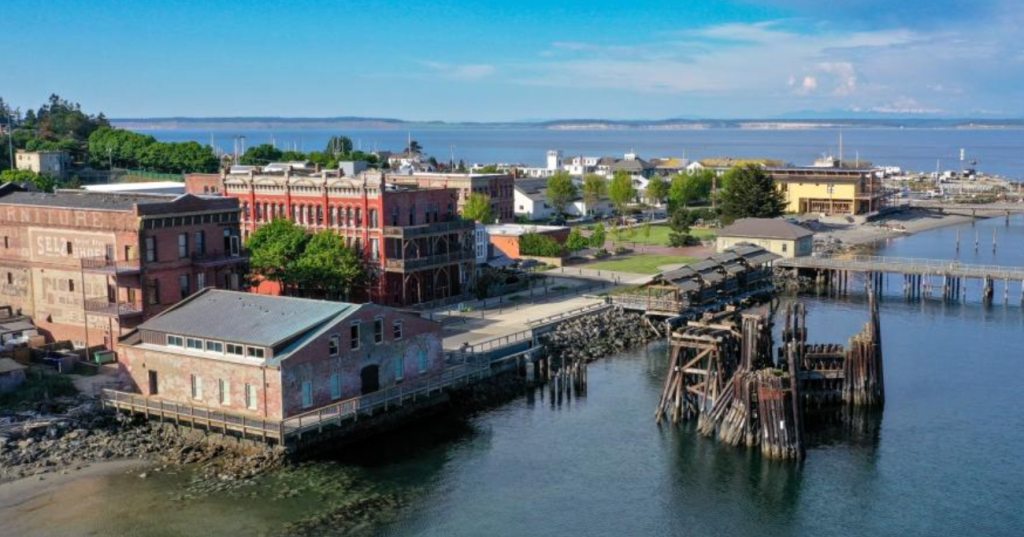
The soundside city of Port Townsend early this month leapfrogged most other Washington cities when it comes to off-street parking mandates, turning the number of new parking stalls required to come with new development anywhere within city limits into just recommendations. The change, intended to move the city away from being one that is currently “over-parked,” reducing housing costs and encouraging walkability, was unanimously approved by the Port Townsend City Council on March 4 as a set of interim regulations that will have to be renewed every six months, but are likely to be rolled into the major update to the city’s comprehensive plan next year.
This puts a small city known for its Victorian architecture, most of which is fairly rural in character, ahead of many of the state’s more urban jurisdictions. Leading urban jurisdictions have rolled back parking requirements for new development near frequent public transit, but none have taken the plunge to roll them back citywide. So this move likely gives Port Townsend the distinction of being the first municipality in the entire state to ditch parking mandates completely, following the footsteps of more than 60 cities around the country, from Bend, Oregon to Roanoke, Virginia.

“What we ended up doing is converting the required minimum parking to recommended minimum parking, that’s the primary code change,” Port Townsend Mayor David Faber told The Urbanist. “The complexity here comes in the form of the engineering design standards for street development.”
Since 1997, Port Townsend has required developers to construct a fairly broad set of street improvements and with the same ordinance, those have been revamped.
“We put all of that on a diet as well, the engineering design standards. There’s a variety of road types required depending on what your project happens to be… all those should be less intensive than what the current standards are,” Faber said. “But they do still require establishing on-street parking. So we reduced the requirements for what has to be done off site — on the street — and we eliminated the requirements for what has to be done on the property itself.”
Rather than controversial, the changes appear to have been broadly supported by, and were largely prompted by requests from, the broader Port Townsend community. “During meetings of the Infrastructure and Development Committee, Parks Recreation Trees and Trails Advisory Board, and Planning Commission, the public has expressed concern that the City is ‘over-parking,’ or requiring, developing, and using too many parking spaces that could be devoted to other land uses,” the staff report from this month’s meeting noted.
Being small and a bit off the beaten path from Puget Sound’s more urban areas has not prevent Port Townsend from being fairly forward-thinking when it comes to tackling some of its most pressing issues, including ramping up spending on affordable housing. Last March, the City Council unanimously approved an ordinance clearing barriers to creating more infill housing in Port Townsend, removing some parking requirements for accessory dwelling units (ADUs), relaxing cottage housing design standards, and allowing more unit lot subdivisions, which had been a barrier to creating townhomes.
With sweeping views of the Salish Sea, historic charm, and a fairly static housing supply, Port Townsend has grappled with housing affordability woes in recent years, as the housing crisis has gone statewide. Parking mandates drive up housing costs significantly, so housing advocates are hoping that lifting them will spur homebuilding and help lower housing prices over time.

“There’s quite a movement happening here around better urban policy: we’re a city, and theoretically, we want to be encouraging less reliance on cars, trying to encourage people to develop for walking and mixed-use of rights-of-way. So that’s the initial impetus for this, and just generally making it more affordable for people to build housing,” Faber said. “There’s tons of housing that was built, you know, pre-1970s, [19]80s, that doesn’t have any on-site parking here in Port Townsend. And so we’re trying to true up to lived experience historically with what we’re allowing people to do now.”
Prior to the passage of House Bill 1110, mainly known as Washington’s missing middle bill, last year, cities generally had to conduct environmental review before they were able to repeal parking minimums, adding staff time and administrative burden. But HB 1110 exempted the act of lowering minimums to zero from the State Environmental Policy Act (SEPA), clearing away a big hurdle. But we haven’t seen many other jurisdictions jumping at the bit to do so, with the idea of any changes to the ability of local governments to set parking minimums still incredibly controversial at the state legislature, in part due to the influence of the Association of Washington Cities, a lobbying group that advocates on behalf of local governments in Olympia.

That stands in stark contrast with Oregon, where city after city has been repealing their minimums over the last few years as the state’s Department of Land Conservation and Development implemented a rule that applies to the 48 cities in Oregon’s metropolitan areas, essentially making a full repeal of mandates the path of least resistance.
“In cities across Oregon, parking mandates are going out not with a bang, but a whimper,” Sightline Institute’s Catie Gould wrote last summer. “Now over a million Oregonians live in communities where parking is fully voluntary. More cities are poised to join them the next year, after using a deadline extension granted by the state.”
Washington cities may not be ready to head in Oregon’s direction without a similar push, but when that time comes, Port Townsend will have been leading the way.
Ryan Packer has been writing for The Urbanist since 2015, and currently reports full-time as Contributing Editor. Their beats are transportation, land use, public space, traffic safety, and obscure community meetings. Packer has also reported for other regional outlets including Capitol Hill Seattle, BikePortland, Seattle Met, and PubliCola. They live in the Capitol Hill neighborhood of Seattle.


